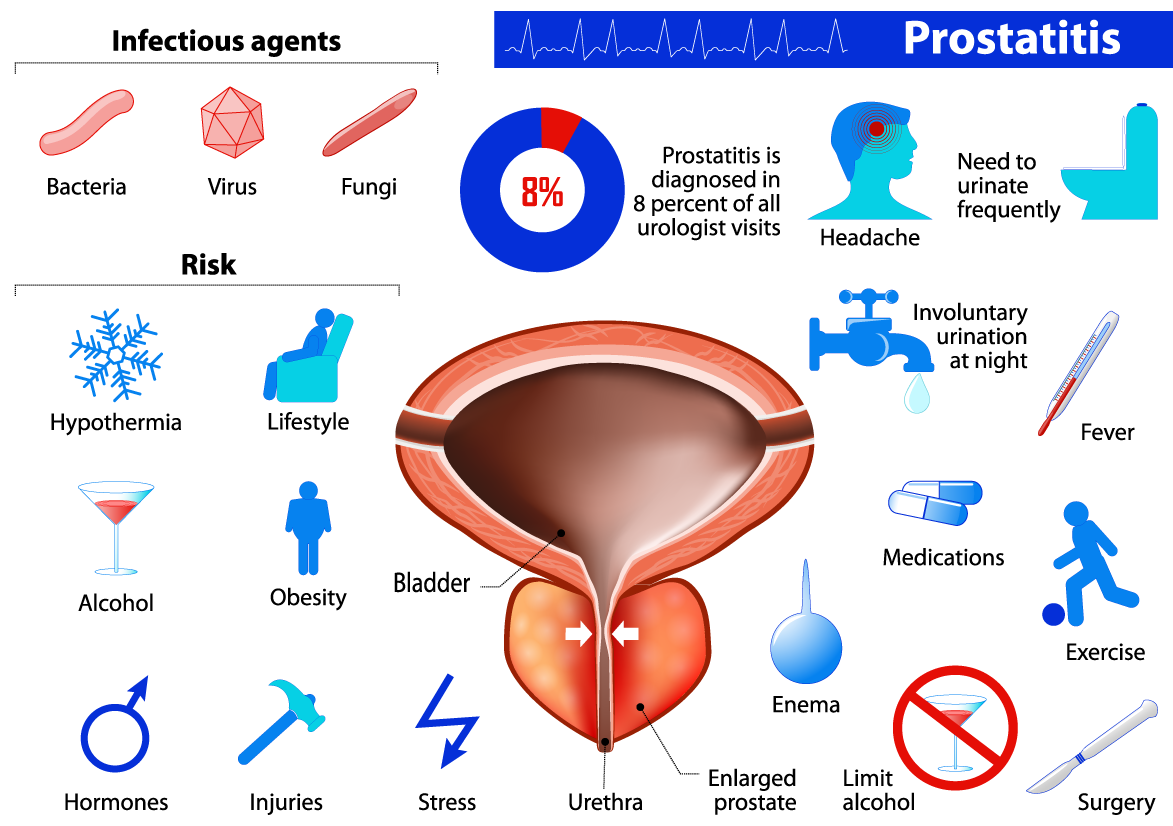Symptoms
Prostatitis typically causes chronic pelvic pain and the pain is most typically felt in the perineum and this can radiate or spread into the testis, down the legs or round to the anus. The pain can be very uncomfortable and can make sitting down very difficult. Often there is pain after ejaculation. This can also be combined with urinary symptoms such as wanting to pass urine more often and having to rush to the toilet. Sometimes patients can feel unwell and tired and there may be associated bowel symptoms.
Diagnosis
Diagnosis of prostatitis can be difficult and is made on clinical examination and on exclusion of other conditions. Quite often patients are miss-diagnosed with other problems and it can take a specialist with an interest in prostatitis to make the diagnosis.
Treatments
Sometimes antibiotics are effective particularly in the early stages although repeated courses of antibiotics should be avoided. Drugs that are used for other prostate conditions such as alpha blockers can be helpful. Some herbal remedies have also been shown to be effective at reducing prostate pain and inflammation and these may be used. In extreme cases where pain is the major problem then drugs such as Amitriptyline or Gabapentin which are used to dampen down nerve responses to pain can be helpful. It is likely that there are a variety of underlying causes for what we now call prostatitis and therefore the specific treatments much be tailored to the precise problem in each individual patient.







